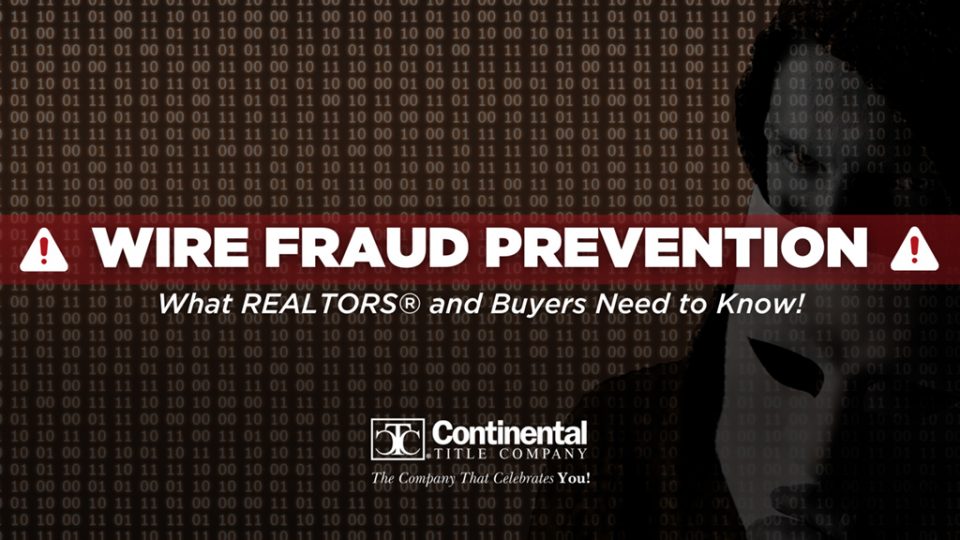Buying a home is one of life’s biggest milestones—exciting, full of possibilities and unforgettable. Unfortunately, this dream can be disrupted by wire fraud, with scammers stealing hard-earned savings in seconds. According to a new CertifID survey, this growing threat causes nearly $500 million in losses annually.
But you don’t have to face this risk alone. Whether you’re a REALTOR® guiding clients or a buyer pursuing your dream home, there are steps you can take to stay ahead of the threat. Continental Title Company prioritizes your safety. By using proactive measures and advanced tools like the aforementioned CertifID, we work to protect your transactions and make your experience as seamless as possible. Here’s how you can stay informed and secure.
Why REALTORS® Are a Key Line of Defense
According to CertifID, 58% of wire fraud victims thought they were communicating with their REALTOR® when they got scammed. Fraudsters know buyers trust you, and by impersonating you, they can lure clients into wiring money to the wrong account. This manipulation not only harms your clients but also can damage your reputation.
How REALTORS® Can Protect Their Clients:
- Talk about the dangers from the start. Make it clear to clients early on that their wiring instructions will never change with CTC. Encourage clients to always call a trusted number to verify any details.
- Use secure platforms. Share documents and communications via secure and encrypted methods whenever possible.
- Share real-life examples. Raising awareness with stories of fraud incidents can highlight the importance of staying vigilant without causing panic.
Being proactive not only protects your clients financially, but also further secures their trust in you as a professional.
Buyers, Safeguard Your Investments
Despite how big a problem wire fraud is, the general public still doesn’t realize how real the danger is. Alarmingly, 58% of homebuyers don’t even realize wire fraud is a threat. Fraudsters use professional-looking emails and urgent language to make their scams convincing.
Recognize the Warning Signs:
- Urgent changes – Be cautious of sudden changes in wire instructions or urgent demands for immediate action.
- Email red flags – Small typos in email addresses or inconsistencies in tone or formatting can signal fraud. (However, these mistakes are becoming less common as cybercriminals become smarter and more organized.)
- Pressure tactics – Scammers often try to rush you into making decisions without verifying.
Stay Safe With These Steps:
- Always verify wire instructions by phone before transferring funds. Call the trusted phone number of the title company to confirm details.
- Avoid relying on email alone for sensitive communications. Fraudsters can spoof or hack legitimate accounts to send false instructions.
- If something doesn’t feel right, wait before acting. A simple pause and verification can save you from catastrophic losses.
A little extra caution now can protect the biggest financial transaction of your life.
Act Quickly if Fraud Happens
If you suspect you’ve been targeted by wire fraud, acting immediately is critical. Follow these steps right away:
- Contact your bank to request a wire recall.
- File a report with the FBI at the Internet Crime Complaint Center (IC3).
- Call Continental Title Company for support and further guidance.
Working Together to Stay Ahead
Wire fraud isn’t just an individual issue; it disrupts trust across the real estate industry and impacts the economy as a whole. By staying informed and vigilant, buyers, sellers and those of us in real estate can work together to minimize the risk and help create safer transactions.
Continental Title Company is proud to contribute to this effort. Whether you’re a buyer with questions or a REALTOR® looking to guide your clients, our 16 locations are here to assist. Have questions? Reach out—we’re here to help. Together, we can reduce the risks and promote secure transactions.
